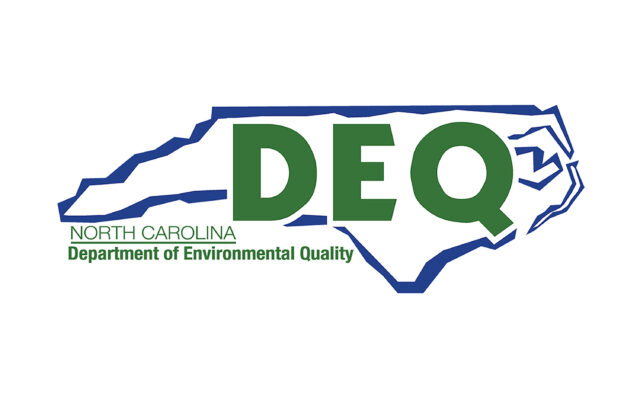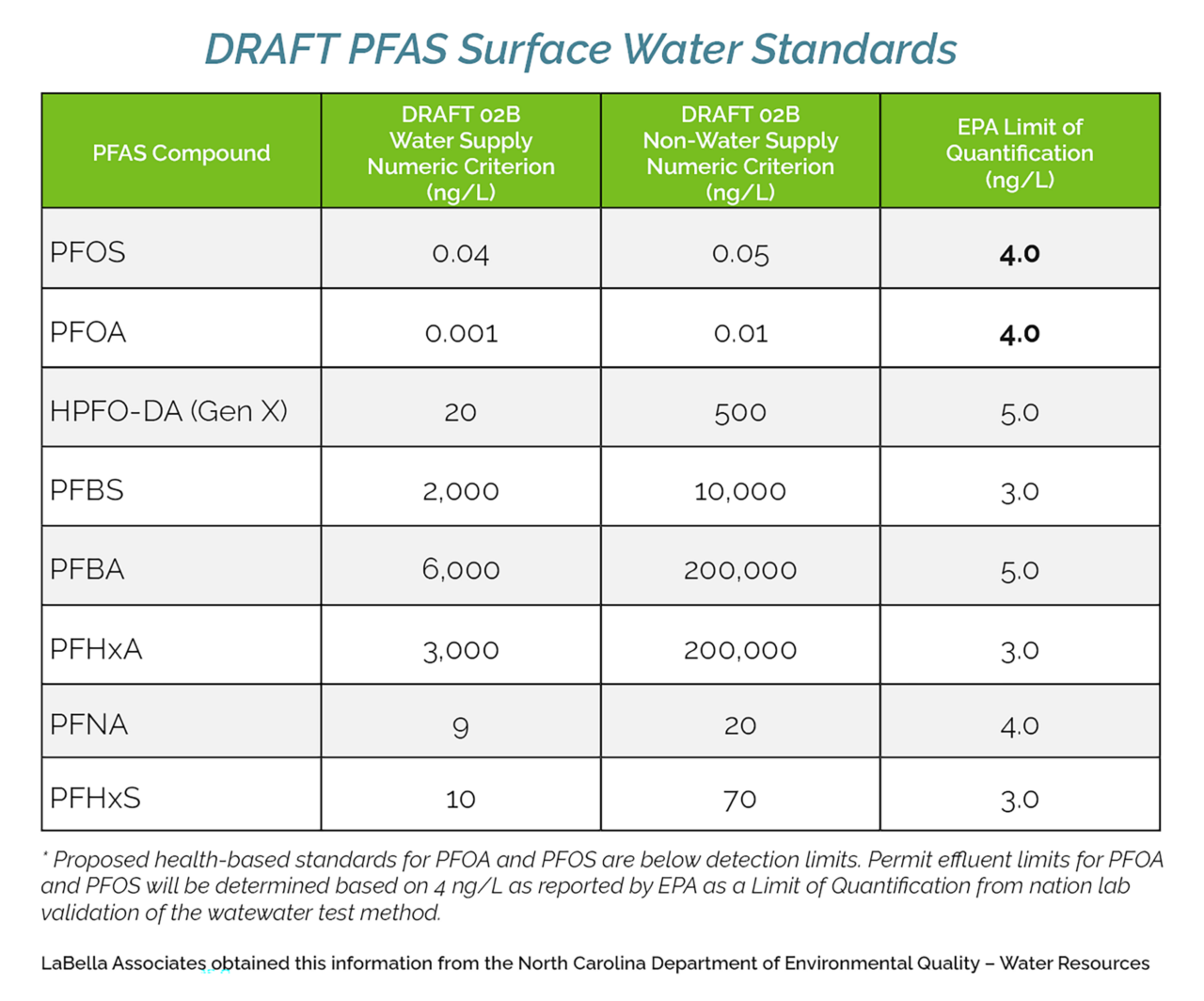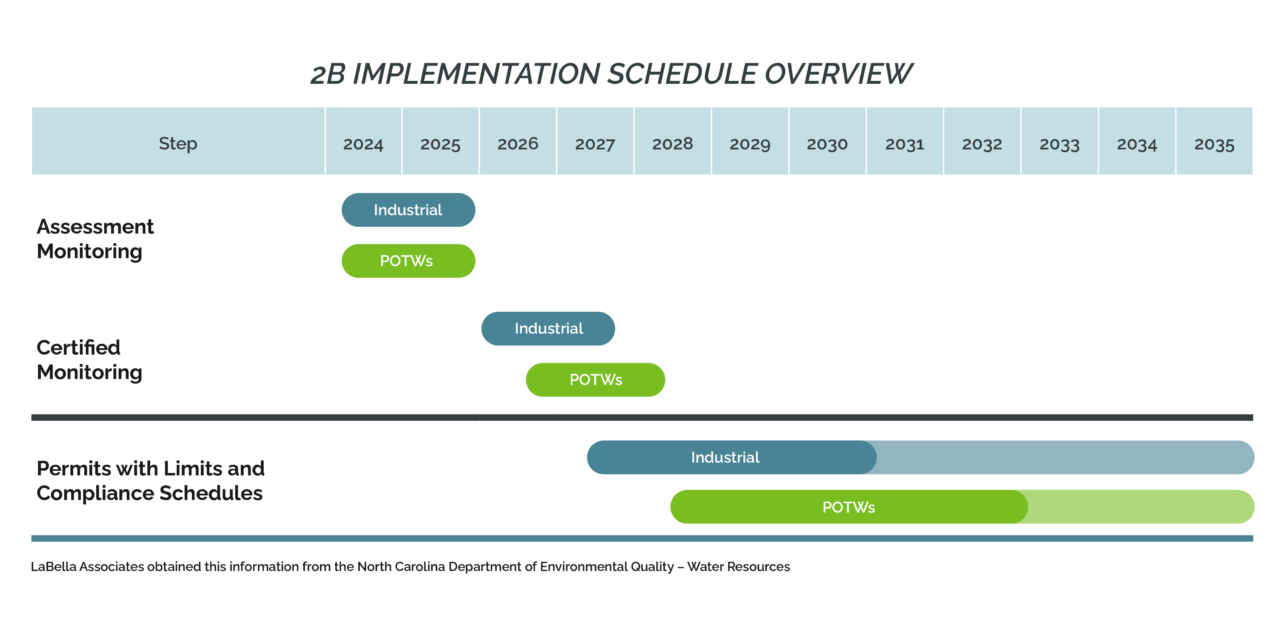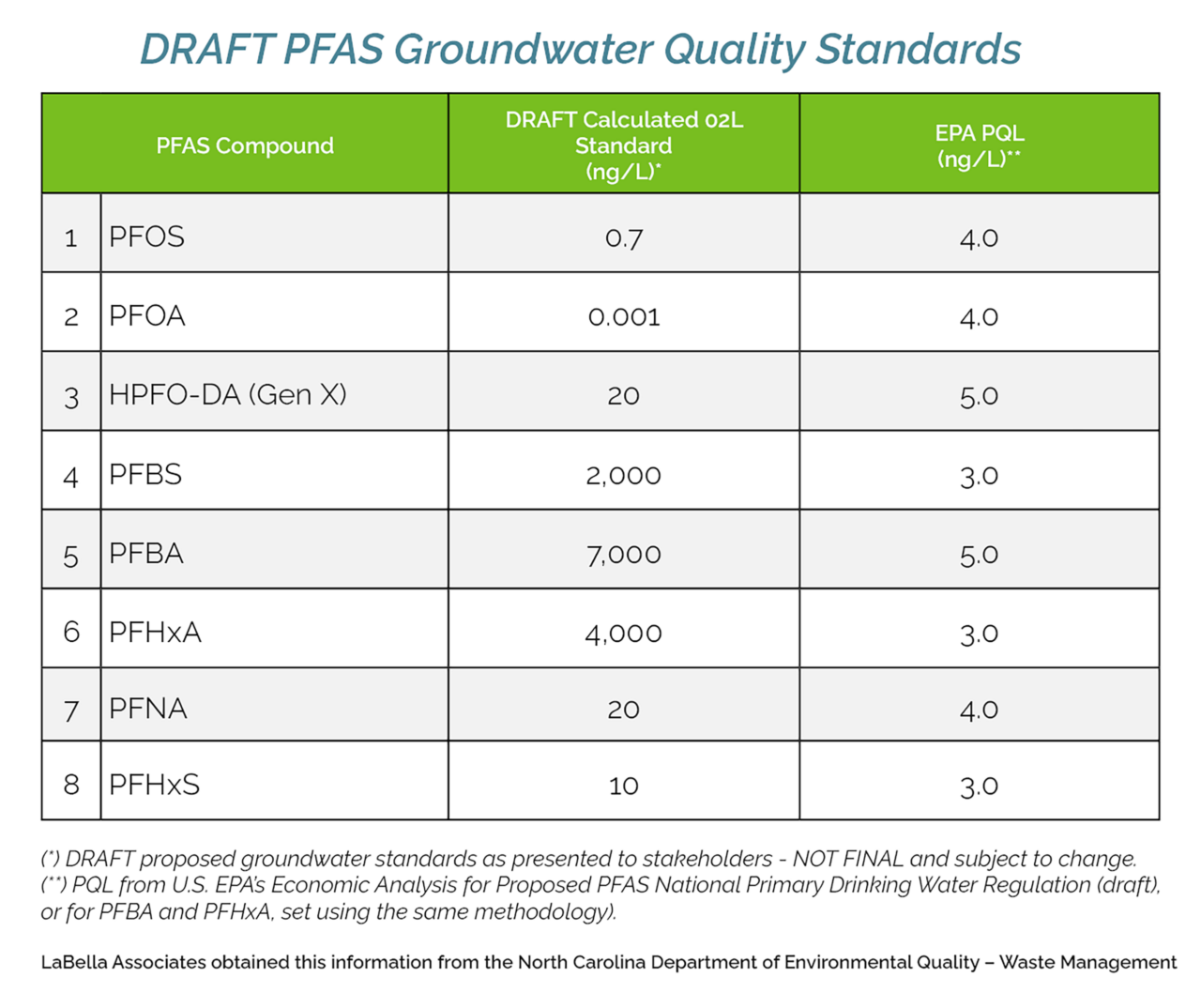NCDEQ Proposes Groundwater and Surface Water Standards for PFAS
Brief Takeaways
- The draft proposed standards for two of the eight compounds (PFOS and PFOA) are extremely low—0.7 parts per trillion (ppt) and 0.001 ppt respectively—much lower than the Maximum Contaminant Levels (MCLs) currently being proposed by the United States Environmental Protection Agency (US EPA), which is 4.0 ppt for both. For PFOA, the proposed standard is less than what most commercial laboratories can actually detect. Practically speaking, if PFOS or PFOA are detected at a quantifiable level (not estimated), then it is an exceedance.
- The draft proposed standards for the other six PFAS are above current practical quantitation limits (PQLs), so they are higher than the effective standards under current rules.
- NCDEQ has been reviewing PFAS results received from landfills in response to a requirement effective July 2023 for PFAS sampling at landfills. They are comparing the groundwater results to the proposed US EPA MCLs to determine “action levels.” Landfills will likely be asked to update their receptor surveys where PFAS are detected in groundwater above the action levels.
- The promulgation of new groundwater standards will include a cost-benefit analysis that will calculate and compare costs for assessment, monitoring, treatment, and remediation of PFAS under the existing rule versus the proposed rule.
NCDEQ’s Proposed NC-2L Schedule
- May 2024: Finalized standards will be presented to the full EMC, followed by a 60-day public comment period.
- November 2024: EMC approval of PFAS standards.
- 2025−2026: NCDEQ to identify sites with PFAS exceedances in groundwater.
- 2026−2027: NCDEQ to require assessment and remediation of sites with PFAS exceedances in groundwater.

NCDEQ’s Proposed PFAS Standards for Surface Water
- NCDEQ proposes standards for surface water (NC-2B) for the same eight PFAS compounds as groundwater.
- A specific schedule for amendments to the NC-2B standards has not yet been set for 2024. However, a long-term implementation schedule has been drafted (see below).
- Holders of National Pollutant Discharge Elimination System (NPDES) permits (e.g., wastewater treatment plants, industries, landfills) will be affected by the new standards.


Featured Insight
New PFAS Monitoring Requirements at NC Landfills – Obtaining Valid Data Is Essential
Over the past several years there has been a lot of conversation, research, and investigation on emerging contaminants, including chemicals known as PFAS. Ongoing legislation and regulations surrounding PFAS are popping up in many states across the U.S.
Recently, NCDEQ released new requirements that all groundwater, surface water, underdrain, and leachate samples collected at solid waste landfills, as required by their solid waste permit or approved water quality monitoring plan, must be analyzed for PFAS on a semiannual basis.
To learn more about the new PFAS sampling requirements in NC landfills and the significant implications they will have on the solid waste industry, check out our deep dive on the topic provided by our Environmental Director of Waste & Recycling, John Westerfield, PG.
Read More Here
